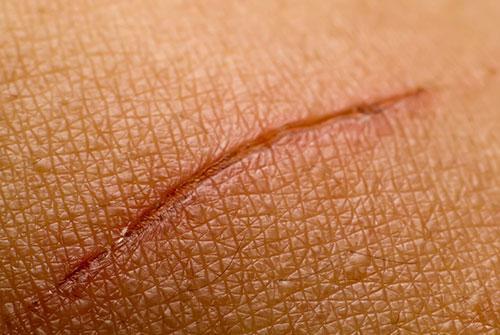What We Do with Their Scars
By Anthony Casperson
4-2-22
Have you ever noticed a pattern in the types of characters you tend to gravitate toward? Whether it’s the ones in the stories you consume (books or movies) or in games you play (board games, video games, or tabletop RPGs), is there some pattern to your favorite characters?
There is for me. I’ve even seen a consistency among my favorites from those characters that I write.
This particular pattern draws me toward those who struggle with some inner darkness, people who have been touched by something often considered bad or evil, but then use that darkness for good. (Maybe you can tell why that draws my attention the most.) Allow me to give a few examples to show you an idea of what I’m talking about. (And the fact that they’re all superhero-like characters is only a coincidence. Other examples weren’t as easy to sum up in a paragraph each.)
One of my favorite characters from a TV show I watched is Raven from Teen Titans (the original cartoon, not newer one). Literally the daughter of a demon and spawned to usher in an apocalypse of sorts, Raven has a lot of inner darkness. Yet she uses the powers and abilities inherent within her to fight against her father and that undesirable purpose. Eventually, even defeating her father with the very powers he gave her.
Another example comes from a superhero RPG that I’ve played. The character I made for the game is named Poe. His superpower allows him to trigger the fight-or-flight response in a person. But he recognizes that utilizing fear as a weapon is not the most heroic-sounding ability. Fear tends to be more of a bad guy thing. And he struggles with doubts of being a hero because of it. Yet still, he fights on the side of good. Even if people do have a tendency to shy away from his presence.
The main character of the superhero/fantasy novel I’m currently writing falls into this category as well. Geist was forged as a weapon for his nation. An assassin who was told from a very young age that his powers made him better than most other people. He literally uses shadow to kill and destroy. But after a mission to stop several masked traitors sends him in an unforeseen direction, he rediscovers the person he was before he gained powers. And must choose which side he’s on now.
I was reminded of my tendency to prefer such characters when the driving theme for another story to write came into my head. (Don’t worry. I’m gonna finish Geist’s story first.) This theme took the shape of a sentence: “Our wounds don’t define us, but rather what we do with their scars.”
We all have been wounded in the past. Negative evaluations placed on us by others. Lies that we’ve grown to believe. Habits that are more harmful than helpful. Addictions that we thought we could handle. And even actual physical wounds.
But often we allow these wounds to define who we are as people. As if the weakness is all there is to us. That darkness eclipses everything else.
Sure, time might pass and the wound cover over, but we still see the scar as that gaping wound. It’s difficult to feel anything other than the pain of the injury. And we wallow in the suffering, never seeing good that can come from it.
But good can be brought out of our scars, if we stop seeing them as wounds that only harm. And start seeing them as something to be used by God. He’s more than capable of showing us how scars can lead to healing and life.
Think about Paul. He was an adamant persecutor of the Church. One of the bad guys. He stood back, feeling triumphant, as followers of Jesus were judged and killed before his very eyes. But then God called him to use that zeal for the purpose of the cross. He traveled around as living proof of how powerful the gospel actually is.
And Paul’s perspective on using our scars continued on even with wounds he received after following Jesus. In 2 Corinthians 11 and 12, he boasts in his difficulties and hardships. Beaten. Lashed. Stoned. Shipwrecked. In constant danger. Insulted. Persecuted. Considered a fool.
They aren’t problems that overshadow everything else and keep him from moving on. They don’t define him or restrain him from doing good. No, they are gladly taken so that the power of Christ may rest upon him (2 Cor. 12:9). So that he can continue in the work of the gospel, his call.
He stands defined by the work of Jesus. Not the wounds inflicted upon him.
The Apostle doesn’t forget the wounds. Or downplay the scars. Rather, he boasts in them so that the work of Jesus can be shown for what it is.
So, let’s stop letting old wounds define us and leave us powerlessly doing nothing. Instead, let’s be defined by the calling Jesus has for us as we join him in his work.
Our wounds don’t define us, but rather what we do with their scars.




